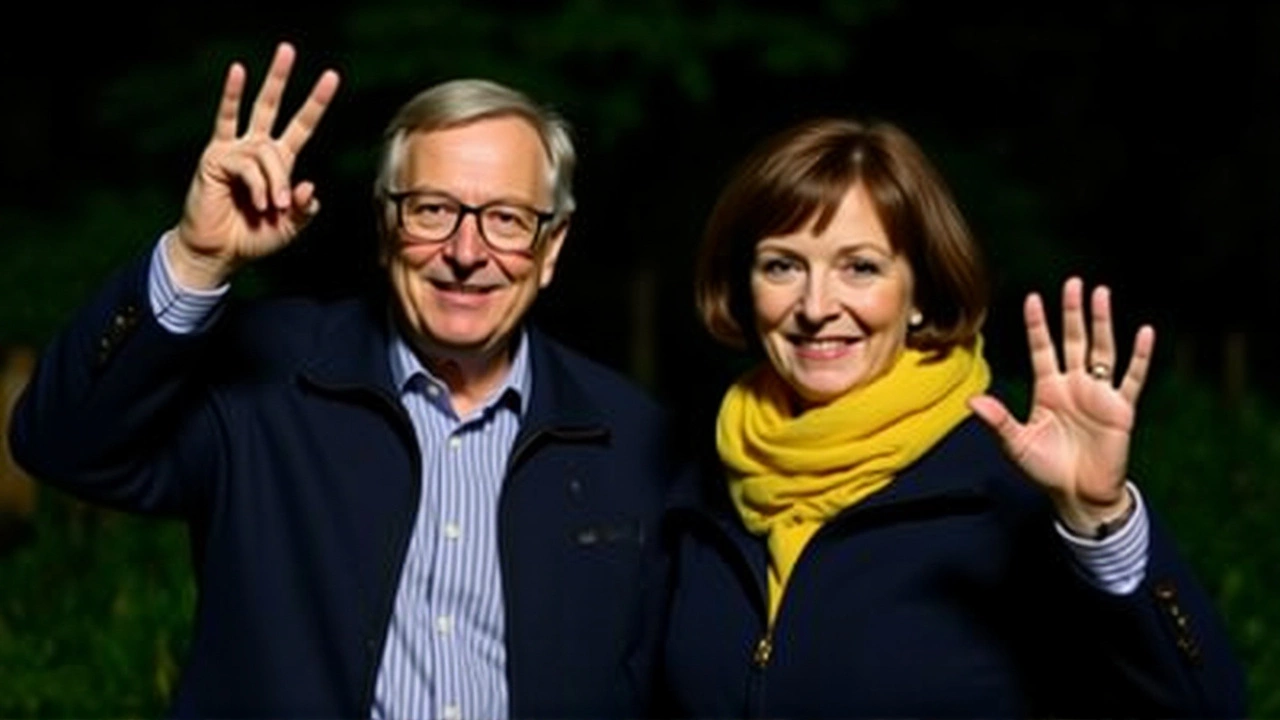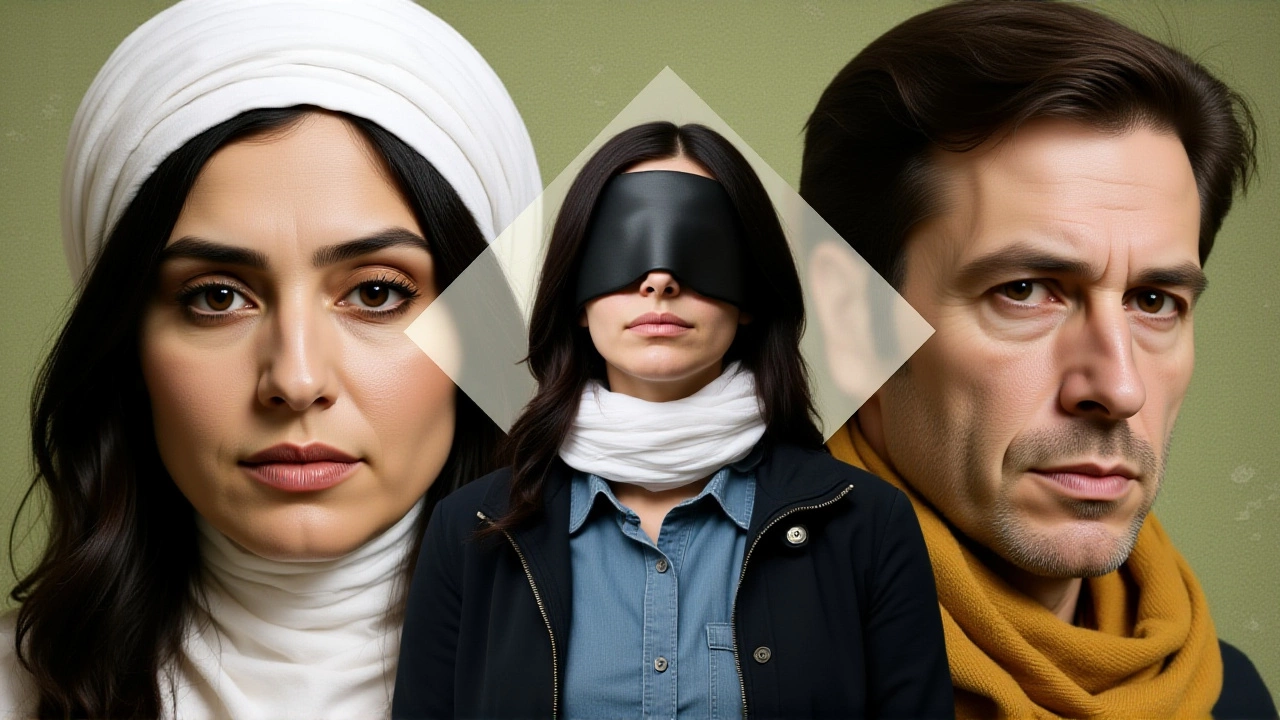The BBC’s gripping four-part drama Prisoner 951 has plunged viewers into the harrowing six-year ordeal of Nazanin Zaghari-Ratcliffe, the British-Iranian dual citizen detained without charge in Iran’s Evin Prison. Available now on BBC iPlayer, the series doesn’t just recount her imprisonment—it lays bare how she became a pawn in geopolitical games, as The Daily Telegraph put it, "a hostage to politics." The drama, produced by the same team behind The Salisbury Poisonings, turns a personal tragedy into a stark indictment of state power, with viewers describing it as "unputdownable" and "speechless-inducing."
The True Story Behind the Screen
Nazanin Zaghari-Ratcliffe was arrested in April 2016 at Tehran’s Imam Khomeini Airport while visiting her parents with her then-toddler daughter. Iranian authorities accused her of plotting to overthrow the government—a charge she and the UK government consistently denied. She was held without trial for over six years, subjected to solitary confinement, and repeatedly denied access to legal counsel. Her husband, Richard Ratcliffe, launched a relentless international campaign, sleeping outside the Foreign Office, staging vigils, and mobilizing public opinion across the UK and beyond. The drama, starring Iranian actress Narges Rashidi as Zaghari-Ratcliffe and British actor Joseph Fiennes as Richard, captures the emotional toll with startling precision. The production avoids melodrama; instead, it leans into silence—the empty chair at the dinner table, the flickering video call that cuts out mid-sentence, the way a child’s drawing gets smuggled out of prison.Who Made This—and Why It Feels So Real
The creators of Prisoner 951 are the same team behind The Salisbury Poisonings, the 2020 BBC drama that depicted the 2018 Novichok attack on former Russian spy Sergei Skripal and his daughter. That series earned critical acclaim for its clinical realism, and Prisoner 951 follows suit. Filmed with a documentary-style hand-held camera, the drama avoids voiceovers or exposition. Instead, it lets the tension build through glances, phone calls interrupted by static, and the slow erosion of hope. Supporting cast members Armin Karima, Parisa Eshghi, and Farshid Rokey portray Iranian officials, prison guards, and lawyers, each role rendered with chilling restraint. The production didn’t just research the case—it consulted with Zaghari-Ratcliffe’s legal team and human rights advocates, ensuring every detail—from the color of her prison uniform to the way guards called her by a prisoner number—was accurate.A National Conversation, Ignited
Zaghari-Ratcliffe’s case didn’t just make headlines—it fractured political consensus in the UK. Labour and Conservative MPs alike called for her release. The Foreign Office was pressured into unprecedented public statements. At one point, then-Prime Minister Theresa May personally raised the issue with Iranian leaders. The drama doesn’t shy from this. One scene shows Richard Ratcliffe standing in the House of Commons lobby, clutching a photo of his daughter, while a junior minister brushes past him without making eye contact. It’s a moment that left many viewers stunned. "I didn’t realize how long this went on," said one viewer on Twitter. "Six years. And no one in power could fix it." The BBC’s decision to dramatize the case—rather than produce a documentary—was deliberate. "Facts don’t always move people," said producer Sarah Phelps in a behind-the-scenes interview. "But when you see a mother holding her child through a glass wall, knowing she might never hold her again—that’s when you feel it." The series has already sparked renewed calls for a UK law to protect dual nationals abroad, something Zaghari-Ratcliffe herself has advocated for since her release in March 2022.
The Release Discrepancy: What’s Going On?
Here’s the odd part: while Hello Magazine and BBC iPlayer confirm the series is available now, IMDb lists Prisoner 951 with a 2025 release date. No official explanation has been offered. It’s possible the IMDb listing is an error—a placeholder left by a production team member before the launch. Or perhaps it reflects a delayed international rollout. What’s certain is that UK audiences have been watching it since early June 2024. The BBC has not issued a correction, and the series remains accessible without restriction. This confusion, oddly enough, mirrors the bureaucratic fog that trapped Zaghari-Ratcliffe for years—where information was either delayed, contradictory, or deliberately obscured.Why This Matters Beyond the Screen
Zaghari-Ratcliffe’s story isn’t isolated. At least 15 dual nationals are currently held in Iran, many under similar false charges. The UK government has no formal policy to protect citizens with dual nationality—leaving them vulnerable to diplomatic leverage. After her release, Zaghari-Ratcliffe told the BBC: "I was never a spy. I was a mother. And they used me as a bargaining chip." Prisoner 951 doesn’t just tell her story—it forces viewers to ask: who’s next? And why do governments tolerate this?Frequently Asked Questions
How long was Nazanin Zaghari-Ratcliffe actually imprisoned?
Nazanin Zaghari-Ratcliffe was detained for six years, from April 2016 until March 2022. She was arrested at Tehran Airport while visiting family and held without trial in Evin Prison, often in solitary confinement. Her release came after intense diplomatic pressure from the UK and a public campaign led by her husband, Richard Ratcliffe.
Who are the lead actors in Prisoner 951, and are they connected to the real case?
Narges Rashidi, an Iranian actress, portrays Nazanin Zaghari-Ratcliffe, and Joseph Fiennes plays her husband, Richard Ratcliffe. Neither actor has a direct personal connection to the case, but both spent months researching Zaghari-Ratcliffe’s interviews, court documents, and testimony from human rights groups. Rashidi even learned Farsi phrases used in Iranian prisons to ensure authenticity.
Why is the BBC’s Prisoner 951 different from a documentary?
Unlike documentaries, which rely on interviews and archival footage, Prisoner 951 uses narrative drama to evoke emotional truth. The producers believe seeing a mother’s fear, a husband’s desperation, and bureaucratic indifference in real-time creates a deeper impact than facts alone. It’s storytelling as advocacy—designed to make viewers feel the weight of political neglect.
What’s the connection between Prisoner 951 and The Salisbury Poisonings?
Both dramas were produced by the same BBC team, known for turning real-world geopolitical crises into intimate, character-driven stories. The Salisbury Poisonings dramatized the 2018 Novichok attack on Sergei Skripal; Prisoner 951 does the same for Zaghari-Ratcliffe’s detention. Both highlight how state power can crush individuals—and how public pressure can sometimes force accountability.
Is there any update on UK policy for dual nationals since her release?
As of mid-2024, the UK government has not enacted new legislation to protect dual nationals, despite Zaghari-Ratcliffe’s public advocacy. Her case exposed a legal loophole: the UK cannot offer consular support to citizens who also hold Iranian nationality, even if they were born in Britain. Campaigners are pushing for a "dual nationality protection bill," but it has yet to gain parliamentary traction.
Why does IMDb list Prisoner 951 as a 2025 release?
The 2025 date on IMDb appears to be an error or placeholder. BBC iPlayer has streamed all four episodes since early June 2024, and UK media outlets like Hello Magazine and The Telegraph confirmed its availability. The BBC has not issued a correction, suggesting it may be an internal database glitch—though the discrepancy adds to the drama’s theme: information, like justice, can be delayed or obscured.
